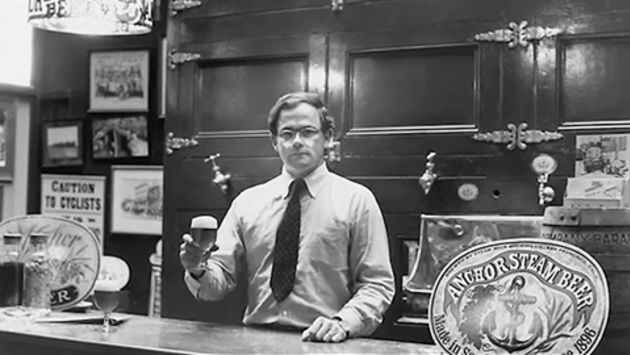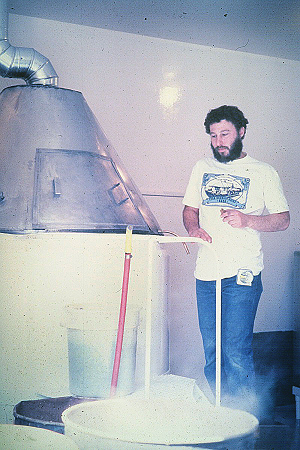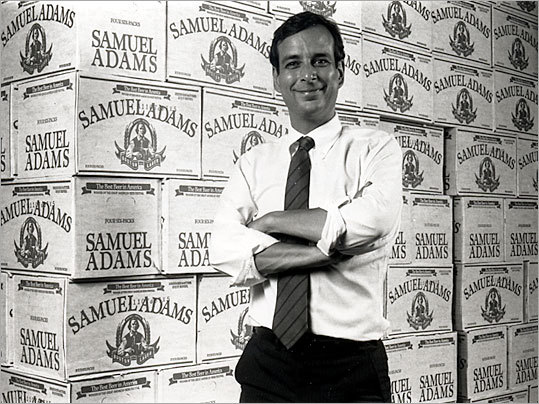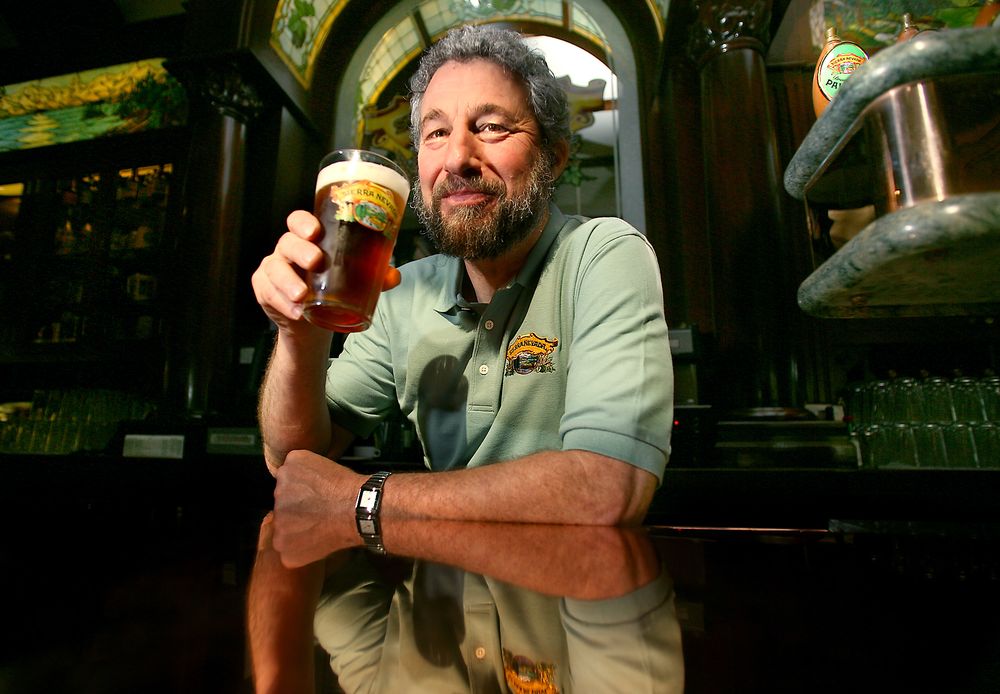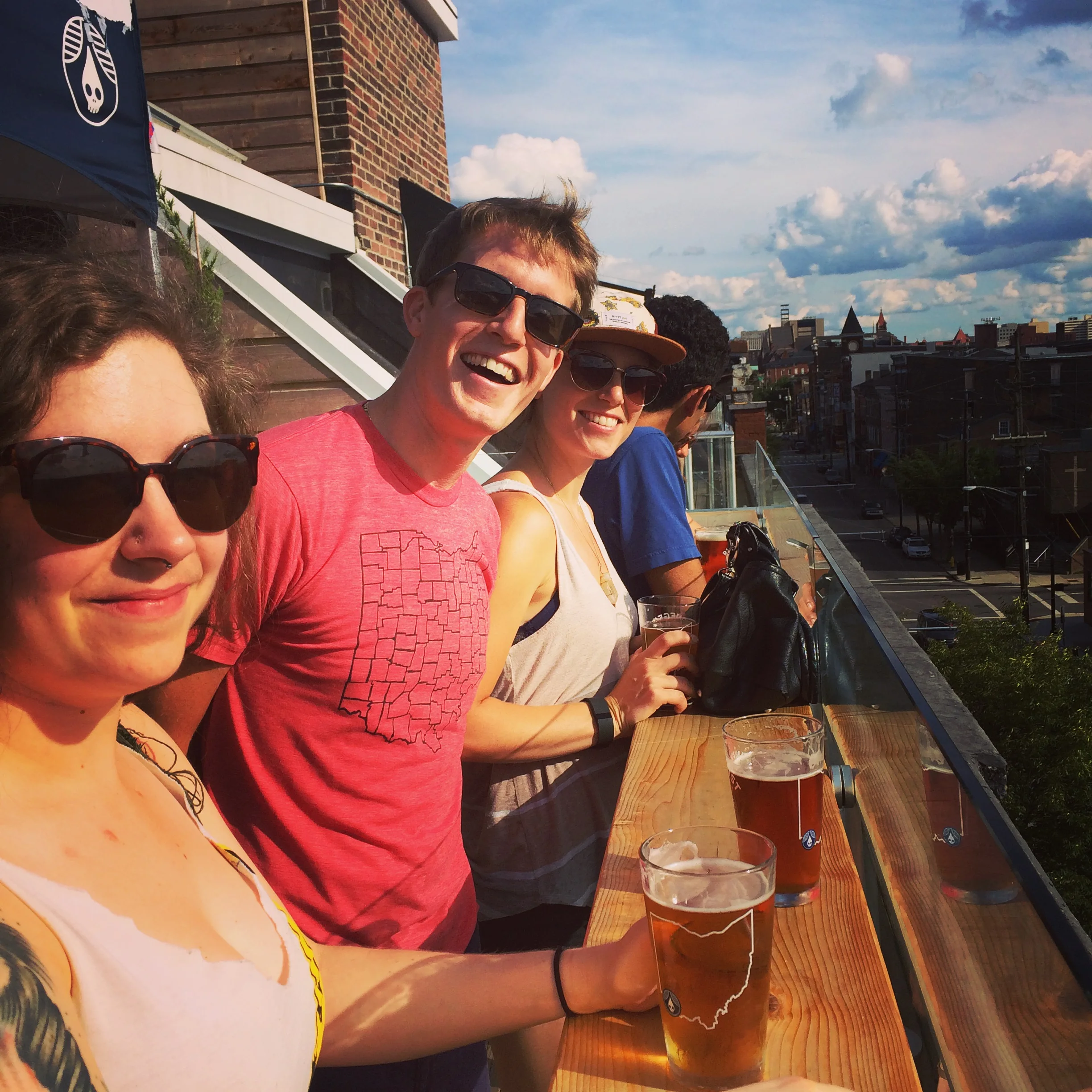American Gods and Sierra Nevada Pale Ale
The Book: Neil Gaiman’s American Gods
A lot of people have recommended Neil Gaiman’s American Gods, but I’ve put it off because I tend to prefer science fiction to fantasy. I started the book years ago and couldn’t really get into it, but when I gave it another go on my little brother’s recommendation, it clicked. I’m not surprised: the premise is pretty awesome.
American Gods has inspired lots of spin-offs, including a series of comics.
The cast of characters is delightful: Gaiman personifies gods whom immigrants have brought to America from their old countries. These gods feed on worship, so some of them have grown weak as they’ve been slowly forgotten by former worshipers who are assimilating to America and modernity. In their place, new gods have emerged, such as Media and Mister World (a personification of globalization), whom we now worship more than any antiquated god of war or Irish sprite.
The narrative centers on Shadow Moon, an ex-con who falls into an old god’s employ as soon as he’s released from jail. But the real story here is the gods: who’s strong, who’s not, and what that says about contemporary America.
As I read, I looked up a bunch of the gods on Wikipedia – a huge part of the pleasure of American Gods is learning about gods such as Bilquis (Yemeni goddess of love), Odin (Norse god of war), Chernobog (Slavic god of evil), Mama-ji (Hindu goddess of war), Baron Samedi (a Haitian loa), and Mr. Nancy (Anansi, a West African trickster god). Since the debut of the Starz adaptation of American Gods, a whole wiki dedicated to Gaiman’s characters has popped up. Wherever you do it, definitely research a little as you read; it makes a binge-worthy read even better.
So far, my favorite episode of Starz’s adaptation of American Gods has been Season 1, Episode 8. It focuses on the goddess of Spring, now worshiped as Easter, and all of the various forms of Jesus Christ that have been brought to America with immigrants.
The Beer: Sierra Nevada Pale Ale
The book got me thinking about some of the now-overshadowed founders of American craft beer, brewers such as Ken Grossman, Fritz Maytag, and Jim Koch. In 1965, Fritz Maytag bought Anchor Steam. And though he says, “I wouldn’t dream of taking any credit,” Maytag effectively saved the brewery, one of the few small breweries around in the 1960s. By 1975, Maytag had the company back in the black. In 1980, Ken Grossman founded Sierra Nevada. Shortly thereafter, Jim Koch started the Boston Beer Company with Sam Adams. These days, these companies are so hugely successful that they aren’t a go-to for a lot of craft-beer drinkers. (Forbes values both Grossman and Koch as “beer billionaires.”)
Prohibition decimated America’s brewing lineage, wiping out almost all of the original German and British brewers who immigrated to America before it. Before Prohibition, America had over 1,000 small breweries; in the 1970s, that number was down to 100; today, it’s up to over 6,000. It wasn’t until Jimmy Carter legalized home-brewing in 1978 and deregulated the brewing industry in 1979 that craft beer in America really started up again. Innovators such as Maytag, Grossman, and Koch had a lot to do with the craft beer resurgence that we’re all enjoying today. But a lot of people forget about their contributions.
Today, we’re at over 6,000 breweries in America.
I often bring Sierra Nevada’s Pale Ale to barbecues; one time, a beer geek friend of mine scoffed a little at my offering. I’ll go to bat for Sierra Nevada, though, especially as a gateway beer – a beer that will convert a non-craft-beer drinker to craft – and that’s why I love bringing it to parties. When we had a Sierra Nevada tap-takeover at BrewDog to celebrate our Resilience IPA release, a server expressed surprise that we’d host such a big brewery. (They brew a million barrels a year.) I went to bat then, too, crediting Sierra Nevada with a significant share of our own company’s inspiration. (Dogfish Head and Stone also inspired Martin Dickie and James Watt to import tons of American hops to Scotland.)
Ken Grossman, founder of Sierra Nevada.
Grossman would freak out, I imagine, to hear himself in any way likened to an “American God” of craft beer, but you get my drift. Sierra Nevada Pale Ale is the perfect beer to drink while binging on American Gods. It’s still the company’s best-selling beer, so obviously a lot of people still worship it, but it’s definitely not the hot new thing in craft beer (this article compares the race to find the most rare beer to the “Pokemon-ification of craft beer,” ha!). It doesn’t have that “novelty premium” that Beervana discusses, persuasively, in a recent pod.
But Sierra Nevada Pale Ale has always been delicious: crisp, clean, and so easy to drink. It pours beautifully – orange, almost amber, with a fluffy white head that results from bottle conditioning. This beer is no hop bomb; the hops are there, on the nose, but definitely balanced by a subtle malt sweetness (there’s just a touch of caramelized malt in the grain bill). On the palate, it’s Cascade all day: pine and citrus. We’re all familiar with Cascade now, but Cascade was a “new” hop back in 1980 when Sierra Nevada released their Pale Ale.
This beer is a classic, not to be forgotten in our worship of new, hard-to-find beers. The overwhelming success of Resilience IPAs (a collaboration beer that over 1,500 breweries made in order to aid in Chico’s wildfire relief fund) shows that brewers still worship Ken Grossman. And the rest of us should, too - maybe while tearing through a copy of American Gods.



